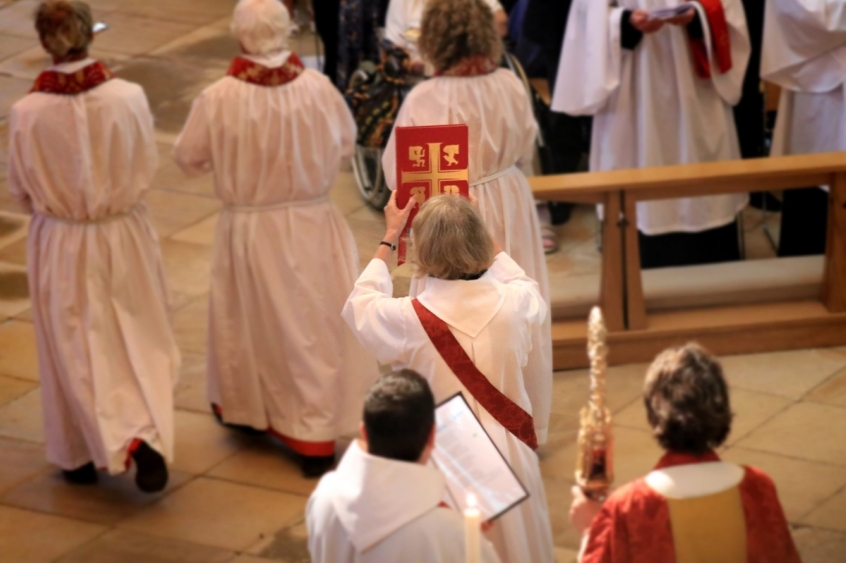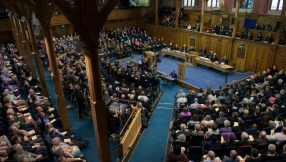
A new report which has branded the Church of England's disciplinary system "toxic" will come as no surprise to everyone who has been following the story.
The paper by Dr Sarah Horsman, warden of Sheldon – a retreat centre and clergy support organisation – described the C of E's Clergy Discipline Measure (CDM) as symptomatic of a wider "toxic management culture". It also called for any replacement system "to be much more distinctively Christian, wiser, more transparent and... simply kinder".
The report's findings included the shocking facts that more than a third of clergy undergoing a CDM considered suicide; only 18 per cent felt they were treated as innocent until proved guilty; and just about half "strongly disagreed" with the statement "I felt supported by the diocese through the process".
The good news is that bishops have all agreed to "work towards replacing the Measure and to making interim procedural changes to ensure the current system is more workable until new legislation is enforced".
But one wonders whether, for one very simple reason, any replacement system will really be much better. And that very simple reason is simply this: the New Testament has quite a bit to say about church discipline. And, by and large, the Church of England mostly ignores it.
So the thing is this: if you start in the wrong place, you will end up with the wrong destination. Or, to put it another way, get on a train heading north and you will not end up going south.
Is it too much to ask that when any replacement system is drawn up, the Church of England might start with the Bible? After all, when bishops are consecrated, they declare their faith "in the belief in the faith which is revealed in the Holy Scriptures".
And what, they might then wish to ask, do these said Scriptures say about church discipline – including the discipline of church leaders? Well, we could start with the teaching of Jesus in Matthew 18v15-17. We could then go on to the Apostle Paul's very practical instructions in 1 Corinthians 5. Then there's John's teaching in 2 John, and that of Peter in 2 Peter, and of course Jude.
Indeed, it turns out there is rather a lot of material to be looking at... How heartening it would be if the foundation of any future disciplinary measure for clergy – and indeed any member of the Church of England, whether lay or ordained, since all of us might need it, whoever we are – was solidly rooted in Scripture. After all, even Wikipedia can provide a simple, accurate and helpful summary of Biblical teaching on this issue – so it can't be too complicated, can it?
Again, assistant professor of church history and historical theology Geoff Chang even provides a 'step-by-step primer for church discipline' which seems solidly built on the teaching of Jesus and the rest of the New Testament.
The problem, of course, is that the Church of England has for a long time failed to do anything about the elephant in the room – the fact that some clergy simply do not believe what they are supposed to teach or live in a way that is consistent with it. So we can have one well-known cleric arguing that "the central purpose of the Church is no longer to reconcile people to God" in clear contravention of the rather clear statement in 2 Corinthians 5v20, among other parts of the Bible, and no-one bats an eyelid.
And then we have the sorry spectacle of archbishops apologising for the Church's own teaching on morality.
So is it any wonder the Church gets into a mess when it tries to enforce clergy church discipline? If you are governed by bureaucracy, procedure and the spirit of the age, rather than the Word of God, that is where you end up.
Baptist theologian John L Dagg said that, "When discipline leaves a church, Christ goes with it." The Sheldon report would like Church of England discipline of clergy to be "more Christian". I'm not holding my breath. But I would love to be surprised.
David Baker is an Anglican minister and Editor of Evangelicals Now. Find him on Twitter at @Baker_David_A
Views and opinions published in Christian Today are those of the authors and do not necessarily reflect the views of the website.













